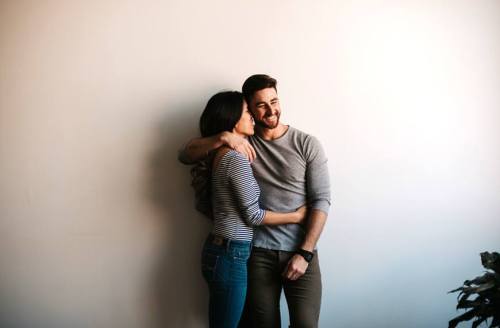Squeezing someone’s hand could actually be an effective painkiller, according to science
According to a new study, holding your loved one's hand while enduring pain reduces the level of discomfort. And it all has to do with empathy.

Have you ever held someone’s hand while getting a flu shot or undergoing some other pain-flanked procedure at the doctor’s office? It’s a common thing so many of us do, but few of us cling to a supportive palm with the expectation of it actually helping to ward off pain. I mean, unless the person you’re with has some sort of superpower, it doesn’t seem plausible that hand-holding could provide anything more than a certain level of emotional support, right? Well, according to a new study published in Proceedings of the National Academy of Sciences, it’s actually very plausible.
The study took 20 heterosexual couples and placed them in six different situations: one in which they were holding hands, one in which they sat together without touching, and one where they sat in different rooms. In each of these three setups, the woman was put through different tests—one painful and one painless.
The researchers used technology called hyperscanning to measure the brain activity from both the man and the woman at the same time. Not only did the researchers find evidence of brain coupling (which Tonic reports happens when a person sees someone else in pain and that first person’s neural system activates to simulate feeling similar pain), but that the brain coupling increased when the couple was holding hands. Beyond the brain coupling, Pavel Goldstein, PhD, an author of the study, told Tonic,“We found that partners hand-holding actually can reduce pain, but the more interesting result was this correlation of the coupling—the synchrony between the brains—and the pain reduction,” he says. “Higher synchrony was related to higher pain reduction, and also, with higher partner empathy.”
Dr. Goldstein added one of the main implications of physical contact enhancing brain coupling between partners: Heightened brain coupling might lead to the person in pain feeling more understood and closer to their partner via empathy, and this might activate reward centers in the brain that lead to a decreased experience pain.
Although the research was conducted on a relatively small group, the reporting methods were more likely more precise than say, self-reporting. Still, although the correlation is clear between brain coupling and pain reduction, the study did not prove causality in either direction, and more research will need to be done to understand this further.
But, let’s be real: Who knew the medicinal healing powers of a helping hand?
If you’re in a relationship you’re going to want to get into your partner’s pup’s good graces and try these exercises for romantic compatibility.
Sign Up for Our Daily Newsletter
Get all the latest in wellness, trends, food, fitness, beauty, and more delivered right to your inbox.
Got it, you've been added to our email list.










